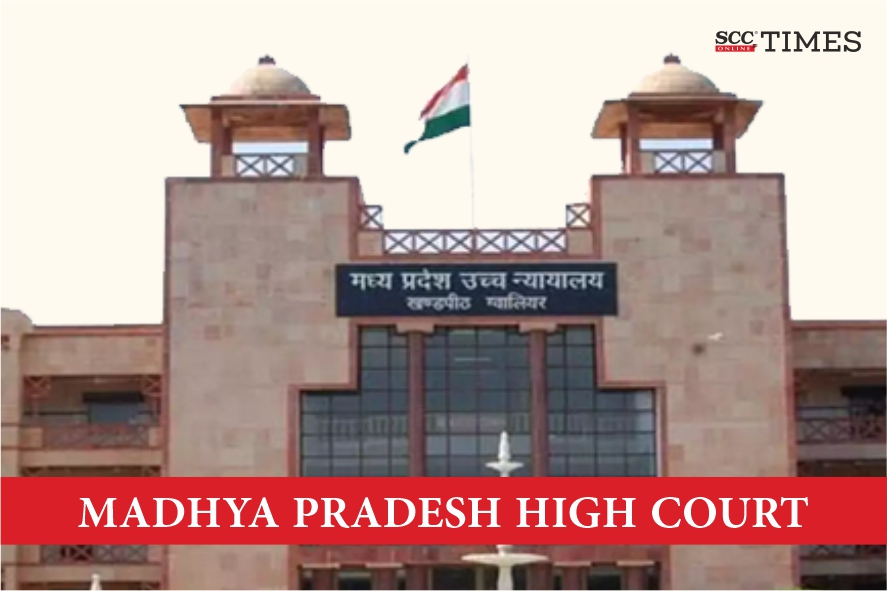Madhya Pradesh High Court: In a writ petition challenging the dismissal of a Civil Judge (petitioner), for delivering final verdicts in several criminal cases without writing judgment, a Division Bench of Suresh Kumar Kait, CJ.*, and Vivek Jain, J., upheld the dismissal.
Factual Matrix
In the instant matter, the petitioner was appointed as Civil Judge Class-II (Trainee) in Madhya Pradesh in 2003. While posted at Tehsil Niwas, District Mandla, a surprise inspection was conducted on 04-12-2012, by the District Judge (Inspection and Vigilance). It was found that in at least 3 criminal cases, the petitioner had delivered final verdicts without writing judgments and had failed to maintain proper order sheets in several other matters.
A departmental enquiry ensued, and the Enquiry Officer, in a detailed report dated 21-03-2014, found him guilty of grave misconduct under Rule 3 of the M.P. Civil Services (Conduct) Rules, 1965 (M.P. Civil Services (Conduct) Rules). As per resolution of the Full Court dated 19-07-2014, the Disciplinary Authority imposed a penalty of removal from service. Accordingly, the Law and Legislative Department issued the order of removal on September 02-09-2014. The appeal was dismissed on 01-08-2016, prompting the filing of present writ petition.
Moot Point
-
Whether the punishment of removal from service was excessive or disproportionate?
-
Whether the petitioner was entitled to parity in punishment with another judicial officer, who was punished less severely for alleged similar misconduct?
Parties’ Contentions
The petitioner admitted to the omissions but claimed they were bonafide mistakes due to work pressure and personal stress. The petitioner offered an unconditional apology and asserted that he had no prior record of misconduct. The petitioner cited Article 14 and 16 of the Constitution and claimed arbitrariness in punishment. The petitioner argued that a similarly placed judge was merely subjected to withholding of two increments, whereas he faced removal from service, thus violating the principle of parity. The petitioner cited B.C. Chaturvedi v. Union of India, (1995) 6 SCC 749 and Ravi Yashwant Bhoir v. District Collector Raigad, (2012) 4 SCC 407, to argue for judicial review of punishment that is shockingly disproportionate.
However, the respondents contended that the charges against the similarly placed judge and the petitioner are of different nature and not part of a common enquiry. It was contended that the other judge’s lapses are related to civil decrees not being properly documented, while petitioner’s misconduct involved acquitting criminal accused without judgment, which was graver. The respondents emphasised that the disciplinary process followed due procedure, and punishment was decided by the Full Court. The respondents cited State of T.N. v. M. Mangayarkarasi, (2019) 15 SCC 515, where the Supreme Court affirmed that unless the penalty is shockingly disproportionate, courts must defer to the employer’s discretion.
Court’s Observation
The Court affirmed that five charges were proved against the petitioner. The Court noted that the Enquiry Officer and Full Court has found petitioner’s conduct “unbecoming of a judicial officer” and held it to be grave misconduct under Rule 3 of the M.P. Civil Services (Conduct) Rules. Court held that
“Delivery of the judgment without writing and adjourning the cases without drawing any order sheet by the petitioner amounts to grave misconduct (…) punishable under Rule 10 of the M.P. Civil Services (Classification, Control & Appeal) Rules, 1966.”
The Court relied on M. Mangayarkarasi (Supra), and High Court of Karnataka v. M. Narasimha Prasad, 2023 SCC OnLine SC 376 and reinforced the principle that “a judicial officer cannot pronounce the concluding portion of his judgment in open court without the entire text of the judgment being prepared/dictated.”
The Court noted that the plea of parity with another judge can’t be sustained as “the enquiries are unconnected” and the nature of misconduct was fundamentally different. The Court stated that parity can only be claimed in a common enquiry with identical charges, which is not the case in the present matter and rejected the parity argument.
“Parity of punishment can only be pleaded in a common enquiry”
The Court pointed out that charges against another Civil Judge pertained to civil decrees without proper records, whereas petitioner’s charges related to criminal trials and acquittals without any judgments.
The Court asserted that the Judicial review of disciplinary matters is limited and does not extend to substituting the penalty unless it is “shockingly disproportionate.” The Court emphasised that, in the present case, the penalty is neither arbitrary nor shockingly disproportionate that it will shock the judicial conscience, and thus did not warrant interference under Article 226 of the Constitution of India.
Court’s Decision
The Court upheld the order of petitioner’s removal from service on not finding any infirmity or disproportion in the penalty imposed and dismissed the writ petition.
[Mahendra Singh Taram v. State of M.P., 2025 SCC OnLine MP 3440, Decided on 21-04-2025]
*Judgment by Chief Justice Suresh Kumar Kait
Advocates who appeared in this case :
Shri Rameshwar Singh Thakur, Senior Advocate with Shri Vinayak Prasad Shah, Counsel for the Petitioner
Shri Anubhav Jain, Counsel for the Respondent No. 1/State
Shri Aditya Adhikari, Senior Advocate with Ms. Divya Pal, Counsel for the Respondent No. 2 and 3



